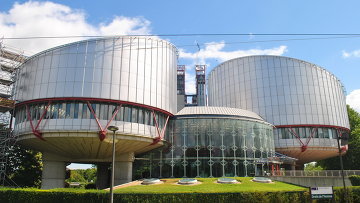MOSCOW, April 11 - RAPSI. The Committee of Ministers of the Council of Europe (CMCE) - European Court of Human Rights’ (ECHR) enforcement arm - released a report Wednesday which laid out analyses relevant to compliance with court judgments by all member states including Russia, which has become increasingly omnipresent in the ECHR.
The report, entitled “Supervision of the execution of judgments and decisions of the European Court of Human Rights,” assesses CMCE 2012 work load as it is empowered by the European Convention on Human Rights (Convention) to oversee the enforcement of the ECHR judgments.
The total amount of just satisfaction awarded by the ECHR in 2012 merits a particular remark as it is considerably higher than previous years: €176.8 million against €72.3 million in 2011. The sharp rise was due to three “exceptional” judgments against Italy which account for a total of €107.7 million. All three cases dealt with Article 1 of the First Protocol to the Convention which guarantees protection of property.
In connection with the respect of payment deadlines and just satisfaction amounts, Russia was relatively successful. 98 payments were made within the court’s deadline, as compared to 39 made outside of the deadline. By the end of the year, 125 cases remained pending. During the course of the year, Russia paid out a total of €7,150,521, a slight reduction from its total payment of €8,727,199 in 2011. Russia’s payment timeliness has significantly improved since 2011, when it made 93 payments within the deadline compared to 107 without.
There are four large groups of Russian cases presently before the CMCE that involve important or complex structural problems, therefore considered sensitive and are under enhanced supervision.
These include the Kalashnikov and Ananyev group, consisting of 87 cases. This group revolves around violations arising from pre-trial detention facilities, including inadequate medical care and the absence of effective remedy.
The Khashiyev and Akayeva group, consisting of 192 cases, revolves around the actions of state security forces in Chechnya.
The Klyakhin group, consisting of 71 cases, centers on various violations raised by remand center conditions.
The Mikheyev group, consisting of 51 cases, focuses on ill treatment in custody and insufficient investigative efforts, as well as prolonged periods in remand centers.
The Ryabkh group, consisting of 89 cases, involves the failure to respect final judgments based on supervisory review procedures.
Overall, Russia is in the lead of states with cases involving the enhanced supervision and important or complex structural problems before the CMCE. Russia accounts for 15% of such cases total. Ukraine and Turkey follow closely behind with 12% and 10% respectively.
The 2012 CMEC report notes the continued growth in the number of cases considered by the ECHR, a rise of 4% compared with 2011.



